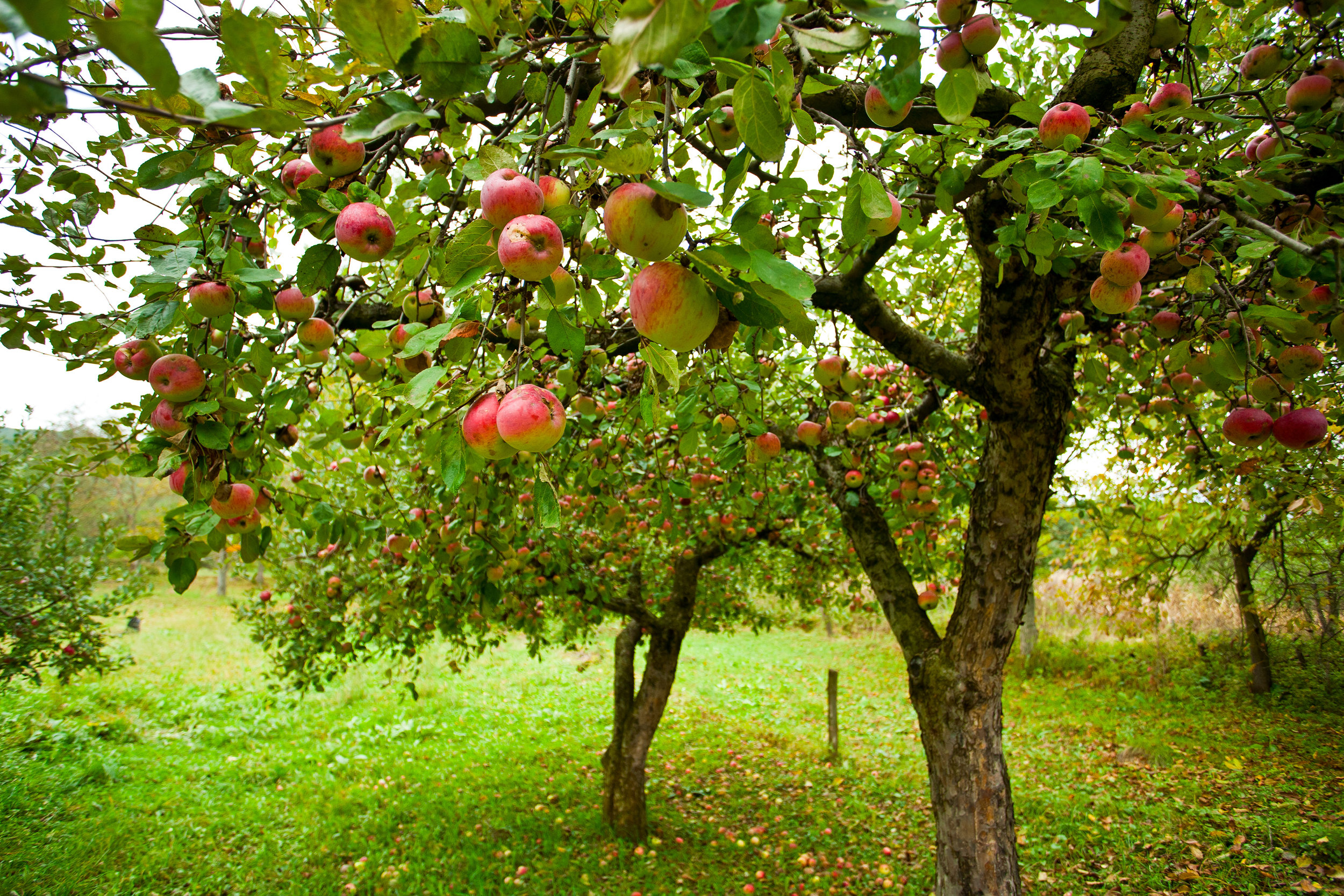Fruit trees invigorate a tired landscape, but any Sussex County, NJ, yard lacking a certain something, can benefit from the fruit trees at our local landscape nursery. Fruit trees create shade and visual interest, and they’ll add color and fragrance to a yard. And, of course, they produce fruit! Here are the four most popular and successful fruit trees in Sussex County, NJ.
Apple Trees
There is really nothing as iconic as an apple tree. With their knotty trunks, sweet pink and white flowers, and delicious fruit, apple trees are icons of country living. Whether you prefer the crisp McIntosh, the sweet and tart Honeycrisp, or the wholly sweet Golden Delicious, these, and all of the most popular varieties of apple, do well in the New Jersey climate. It is important to note that apple trees will bear fruit only if two or more trees exist in close proximity to one another. Apple trees, like some other fruit trees, require cross-pollination to bear fruit. Your E.P Jansens Nursery professional will be able to suggest the best variety of apple for a specific soil composition and landscape. With that said, regardless of growing conditions, apple trees can sometimes be prone to parasites. However, if the growing conditions are good, and the health of the tree is monitored, apple trees can live productive and exceedingly long lives - often upwards of 60 years.
Cherry
Depending on the variety of cherry tree, they may be either self-pollinating or require a companion tree. Typically, the most popular cherry trees in New Jersey are relatively small, so they are perfect for those who don’t want a tree that is going to take up a lot of space. Varieties such as, English Morello and Montmorency are great options for the New Jersey climate. These trees are healthiest when frost-producing winters occur. Cherry trees actually require frost-producing winters in order to make cherries. It is possible, therefore, to have a season without fruit. One of the perks of the cherry tree is its ability to withstand drought.
Pear
Pear trees, like apple trees, will need a companion in order for cross-pollination to occur, and for the trees to yield fruit. Anjou, Bosc, and Bartlett are all good pear tree varieties that do well in the New Jersey climate. Pear trees are famous for producing a significant amount of fruit. Having two pear trees, because of the need for cross-pollination, means that the homeowner will need to make a plan as to how they will use the fruit. Otherwise, they’ll have a yard full of many, many pounds of rotting pears! Pear trees should be planted on a hill or slope to ensure proper drainage, as they are particularly sensitive to inadequately drained soil. Pear trees are also known to be susceptible to blight so attention must be paid to monitoring their health.
Related: Add Color to Your Bergen County Winter Landscaping with These Evergreens from our Wholesale Nursery
Peach
New Jersey is the third-leading producer of peaches in the USA. Most peach trees do not require cross-pollination to produce fruit, but some varieties do. Peach trees, like most fruit trees, require adequately drained soil and exposure to full sun. Pruning must be a priority for the health of the peach tree, and in order to get large fruit yields. Peach trees have a relatively short lifespan, typically only 20 years, but they are one of the easiest fruit trees to grow and maintain. In order to grow the healthiest fruit trees, it is important to know the type of soil, drainage capacity, sun exposure, and basic topography of the landscape.


